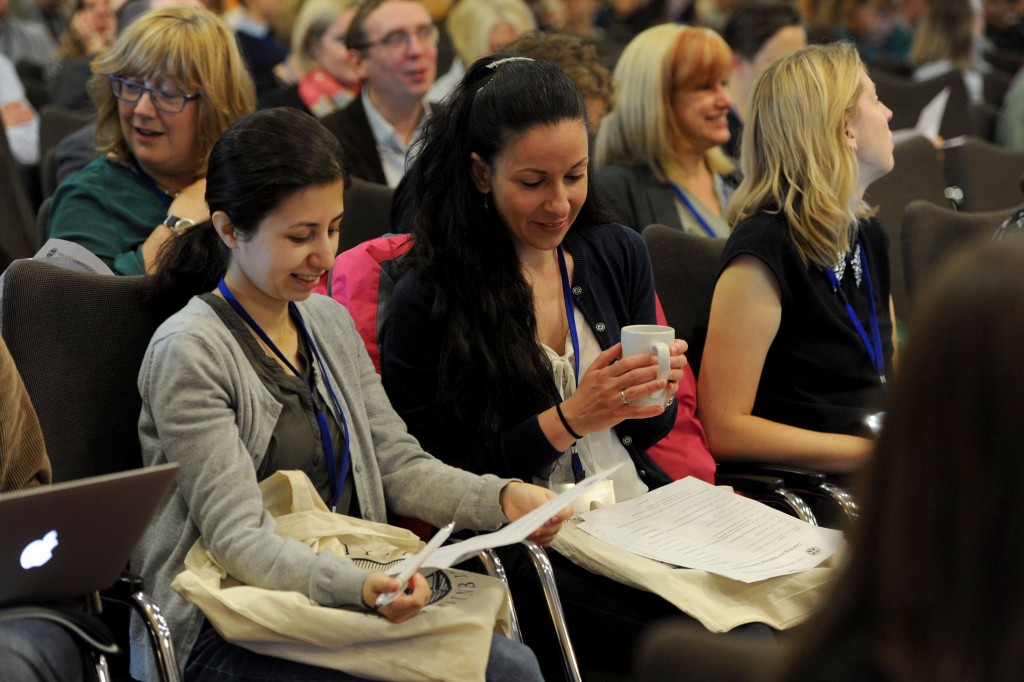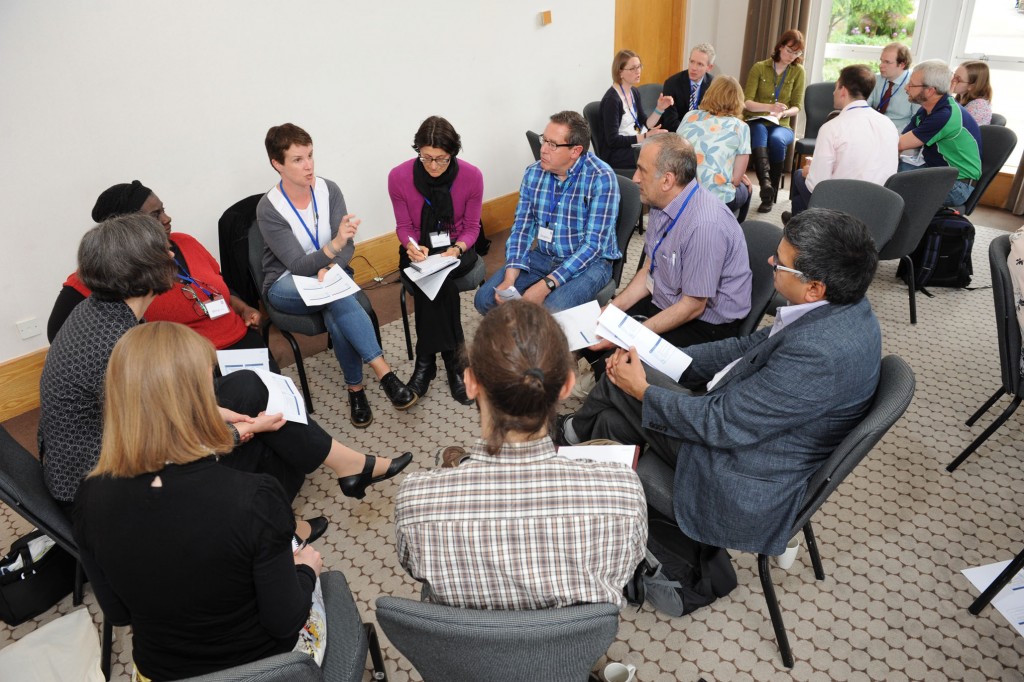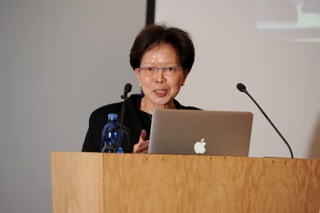
This guest post is written by the keynote speaker at the University’s first Learning and Teaching Conference, Professor Amy Tsui. Professor Tsui reflects on the success of the conference, and summarises the central messages from her keynote speech…
It was an immense privilege to have had the opportunity to share my experience of leading the reform of the undergraduate curriculum from three years to four years at HKU at UoE’s first ever university-wide Teaching and Learning Conference on 20 June 2018. When I arrived at the conference venue, I was struck by how well attended the conference was. There were close to 300 staff members and students, and I heard that the places filled up soon after the conference was announced!

The programme was very rich and the topics covered wide-ranging. The conference was extremely well organised, and the John McIntyre Conference Centre was buzzing with excitement and intensive discussions. Congratulations to Catherine (Bovill) and her colleagues for having done a marvelous job in making this happen! The existence of a vibrant community of practice in teaching and learning at UoE was unmistakable.

For a community of teaching and learning to thrive in any educational institution and to bring about change in student learning, the commitment of the senior leadership is critical. This was evident in the opening speech of the Principal, Peter Mathieson, when he emphasised that providing an enriching student experience was a core mission of UoE, and made clear his intention to achieve this mission through reforming the curriculum. This was echoed by Charlie Jeffrey, the Senior Vice Principal, who initiated this conference. UoE is certainly on a strong footing to embark on a curriculum reform!
In my presentation, I tried to cover the undergraduate curriculum reform journey at HKU over a span of almost nine years in 50 minutes, and that was a bit of a challenge. I felt that it was important to cover the conceptual framework, the key message, the key concepts and the theoretical motivations that guided our thinking, but it was also important to share the arduous process of mobilising the entire university community, both academic and administrative staff. I only managed to skim the surface of what was a tremendously complex endeavour. The participants were highly engaged and a number of hands went up after my presentation. Again, it was difficult to address all of the questions in any depth, and my apologies to those whose questions I did not have time to address.
I just wish to highlight a few points in this blog, for the benefit of those who were not able to attend my presentation.
First, at HKU we had the advantage of having an additional year, as mandated by the government, and hence more curriculum time to introduce new features and components. We debated about whether we should just focus on the additional first year, leaving the existing three-year curriculum untouched, and we decided that doing that would be reductionist and that we should adopt a transformative approach and revamp the entire undergraduate curriculum. This proved to be the right decision.
Second, for the reform to be meaningful, it was important for the university community to come to an agreement with regard to what we wanted to achieve in the reform. It took us two years of extensive discussion and consultation with Faculties to have the educational aims of undergraduate education endorsed by Senate. To achieve that, we looked at the big picture – the changes in the global environment, their impact on higher education and how universities worldwide had responded to that. We also asked if there was evidence for the need to change the existing curriculum. So we collected a lot of data on how our students experienced the learning that they had had at HKU. The negative findings were initially received with disbelief and skepticism, and they were a very good wake-up call for the university community.

Third, to engage and empower colleagues to take ownership of the reform, it was important for them to have a common language to talk about the reform so that they could contribute to the meanings of the key message, the guiding conceptual framework and the key concepts.
Fourth, the operationalisation of these meanings was crucial – otherwise they would be sheer rhetoric.
While sustaining change was very challenging, we tried to achieve sustained change by:
- Incorporating the new features into the daily practice of teaching
- Formulating policies to ensure implementation
- Providing longitudinal data on student learning experience for Faculties to review their practices and to formulate action plans to address issues revealed by the data.
We had graduates of the first 4-year cohort in 2016. The longitudinal student learning data showed a clear upward trend, and we have had positive feedback from employers about the graduates of this new curriculum. However, the world is changing fast, and so are our students. Curriculum renewal is a continuous process and we can never be complacent.
You can watch the video of Professor Tsui’s keynote talk here, along with Dr Torgny Roxå (Lund University, Sweden) keynote talk, Principal Peter Mathieson opening welcome. The slides from each of the parallel sessions are also available to view online.

